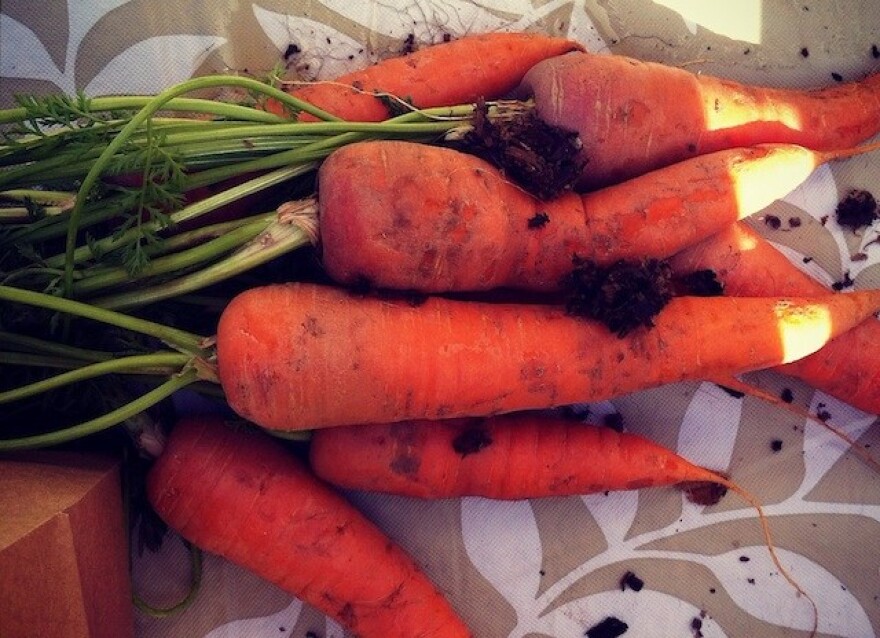This story is free to read because readers choose to support LAist. If you find value in independent local reporting, make a donation to power our newsroom today.
This is an archival story that predates current editorial management.
This archival content was written, edited, and published prior to LAist's acquisition by its current owner, Southern California Public Radio ("SCPR"). Content, such as language choice and subject matter, in archival articles therefore may not align with SCPR's current editorial standards. To learn more about those standards and why we make this distinction, please click here.
Why Organic Produce Can Still Be Better, Despite New Study Saying It's Not 'Healthier'

A recently-released study by Stanford University says that organically-grown produce doesn't contain any more nutrients or vitamins than its conventional counterparts. This has the media -- and in turn consumers -- abuzz about whether purchasing the pesticide-free fruits and veggies is worth it.
The popularity of organic products, which are generally grown without synthetic pesticides or fertilizers or use of antibiotics or growth hormones, is booming in the United States. The sale of organic foods increased from $3.6 billion to $24.4 billion between 1997 and 2011 in the U.S., and despite the floundering economy, consumers have been willing to pay double the price of their conventionally-grown counterparts.
After sifting through 237 relevant studies on the matter, the researchers at Stanford found little significant difference in health benefits in the increasingly-popular organic foods.
“There isn’t much difference between organic and conventional foods, if you’re an adult and making a decision based solely on your health,” said Dena Bravata, MD, MS, the senior author of the paper.
Stanford Medicine elaborates:
"No consistent differences were seen in the vitamin content of organic products, and only one nutrient — phosphorus — was significantly higher in organic versus conventionally grown produce (and the researchers note that because few people have phosphorous deficiency, this has little clinical significance). There was also no difference in protein or fat content between organic and conventional milk, though evidence from a limited number of studies suggested that organic milk may contain significantly higher levels of omega-3 fatty acids."
But the study seems to miss the point. The reasoning behind buying organics isn't as simple as the food being "healthier." There's really no doubt in our minds that consuming chemical-ridden carrots could be harmful, of course. But the real rationale behind buying local, organic produce is to know exactly where your food came from, who grew it, and how far it traveled to get there. All three of those factors play into the most important reason to buying local: When food is grown mindfully by passionate farmers, picked at its peak ripeness, and then sold directly to consumers, it simply tastes better. And though it's true that not all purveyors at the farmers markets are certified organic, the carbon footprint of their goods treads lightly.
In the words of our fellow journo Francis Lam on Twitter, "Saying organics aren't worth it because they don't have more vitamins is like saying lifting weights [is fruitless because it] doesn't give you better skin."
Other news sites are asking if this new Stanford study will drive consumers away from organic produce. If their reasoning behind buying organic was simply to avoid taking multivitamins, then perhaps so. But if consumers have done their homework, this won't impact the local food movement.







